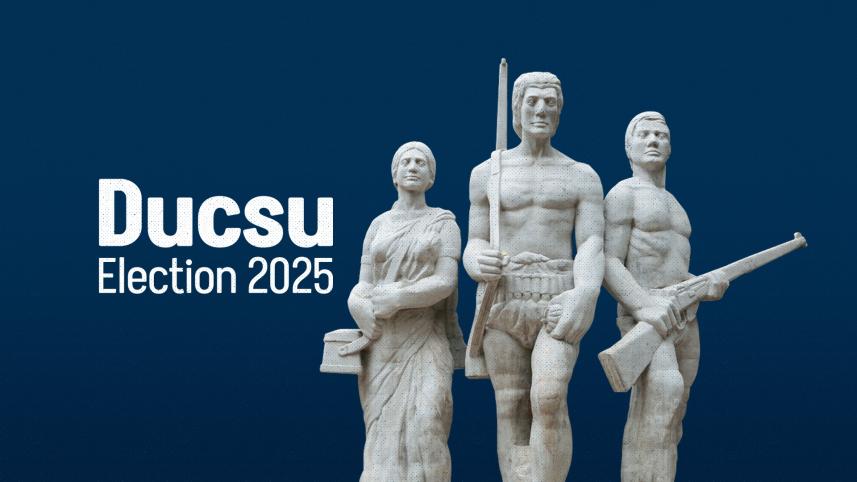Ducsu polls: BGCS pledges to end ‘gono rooms’ at dormitories

The Boishommo Birodhi Shikkharthi Sangsad panel, of Bangladesh Gonotantrik Chhatra Sangsad (BGCS), yesterday announced its manifesto for the upcoming Ducsu election, vowing to transform Dhaka University into a research-based institution and to prioritise political freedom on campus.
BGCS was formed after the fall of the Sheikh Hasina-led Awami League government on August 5 last year. Many of its members were directly involved in the July uprising that paved the way for political change.
Its pledges include eradicating the long-standing culture of guest and common rooms, popularly known as "gono rooms" in the halls.
Abdul Qader, vice president candidate; Abu Baker Mojumder, general secretary candidate; and Ashrefa Khatun, assistant general secretary candidate, read out the manifesto part by part at Madhur Canteen.
According to it, a cybersecurity cell and legal support for women were proposed, along with library facilities, healthcare, and transportation services through a "One Card All Service" system. It also pledged to recover nearly 300 acres of land encroached upon by the university.
Qader said students have long been deprived of their rights, adding that some have turned the university into a cantonment, while others into a concentration camp.
The manifesto states that regular Ducsu elections will be guaranteed in the academic calendar, while party politics will be abolished in halls and on the academic field.
It also mentions in the "Academic and Administrative" section that the autonomy of the university will be ensured through democratic reforms as envisioned in the DU Ordinance-1973.
An app called "One-Stop Solution" will be developed, allowing students to complete admission, access exam results, collect admit cards, and pay tuition fees in one place.
The manifesto pledged a "One Student-One Seat" policy for fair housing allocation. It also emphasised strict action against moral policing over clothing and committed to eliminating discrimination against students from minority religions, ethnicities, and madrasas.
It further said the panel would provide high-speed internet service across campus through Starlink, launch part-time job schemes, and offer skill development training in dormitories.
Finally, it proposes a museum and cultural centre to preserve Dhaka University's history.



 For all latest news, follow The Daily Star's Google News channel.
For all latest news, follow The Daily Star's Google News channel.
Comments